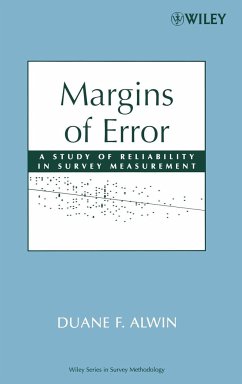
A Manual for Repertory Grid Technique
Versandkostenfrei!
Versandfertig in über 4 Wochen
54,99 €
inkl. MwSt.
Weitere Ausgaben:

PAYBACK Punkte
27 °P sammeln!
Repertory Grid Technique is a way of quantifying personal constructs, the basis of George Kelly's famous theory. This now classic manual revises and updates the structure and content of the first edition, including different forms of the Grid; advances in understanding the complexities of the analyses of grid matrices; and the use and analysis of multiple grids.
First published in 1977, this now classic manual has been completely revised and updated to reflect the enormous changes that have taken place both in the popularity of repertory grid methods and in the study of the methods themselves.
Aimed at novices as well as those already knowledgeable about grid usage, this manual provides an overview of George Kelly's personal construct theory, which underpins repertory grid methods. The reader will learn how to design a grid, with guidance on how to choose elements and ways of eliciting personal constructs that can influence the results obtained.
The second edition includes multiple examples of grids, as well as:
_ New chapters on the main computer methods of analysis available
_ Supporting website with grid analysis programs available to download
_ Extended annotated bibliography of the many examples of grid usage
This book will appeal to psychology students, practitioners and academics. Other professionals who will find this an invaluable guide include managers, teachers and educationalists, speech and language therapists, nurses, probation officers and psychiatrists.
Aimed at novices as well as those already knowledgeable about grid usage, this manual provides an overview of George Kelly's personal construct theory, which underpins repertory grid methods. The reader will learn how to design a grid, with guidance on how to choose elements and ways of eliciting personal constructs that can influence the results obtained.
The second edition includes multiple examples of grids, as well as:
_ New chapters on the main computer methods of analysis available
_ Supporting website with grid analysis programs available to download
_ Extended annotated bibliography of the many examples of grid usage
This book will appeal to psychology students, practitioners and academics. Other professionals who will find this an invaluable guide include managers, teachers and educationalists, speech and language therapists, nurses, probation officers and psychiatrists.












